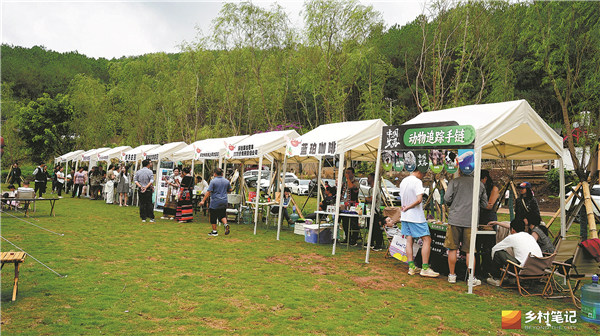Coffee park gives village seed-to-cup buzz


Yu and Piao then reached out to Cai Zhongshun, chair of the Shanghai-based MQ Coffee, one of the leading brands nationwide.
The two took Cai on an inspection tour of the coffee production areas in Lancang and eventually settled on Gaixin, which is about a 15-minute drive from Lancang Jingmai Airport.
It sits 1,500 meters above sea level and has more than 130 hectares of coffee plantations, making it an ideal place for growing high-quality coffee, Cai observes.
Cai says he hopes to promote coffee cultivation in the surrounding areas.
Currently, the factory in Gaixin can produce 3,000 metric tons of coffee annually, with the potential to achieve an annual production of 10,000 tons in the future.
His company will manage soil conditions, fertilization, harvesting and processing of coffee beans to upgrade the product quality, Cai says.
"The company not only has technology and educational training resources but also connects to the international market," Yu says.
"After the company established operations in Lancang, the county gained its first advanced coffee processing production line. This not only provides residents with nearby employment opportunities but also promotes the cultivation of premium coffee and helps Lancang train coffee talent," he adds.
Once MQ Coffee settled in the village, Yu began to contemplate how to improve the village's appearance and infrastructure and mobilize the villagers to get involved and increase their incomes.
He believes farmers are the mainstay of rural vitalization and have to be part of the concerted force along with the efforts of the government and market.
Yu then reached out to Wang Xingyu, who he went to college with, and has been striving to integrate education with rural experiences since 2017. Wang managed to bring thousands of urban students to villages across the country.
Wang visited Gaixin for the first time in 2022 when he and Yu brainstormed about the village's future development and reached a consensus of attracting more young people to work there.
In Wang's opinion, the coffee park can serve as a community for urban and rural youths to work together.
He intends for the park to offer young people support in information, resources, models and space that are necessary for their entrepreneurial causes. "Identifying a real rural issue and finding a group of urban and rural youth to solve it together might be a new model for rural vitalization," Wang says.
He will work with local authorities to launch the Village Governance Officer Project in Gaixin and find urban and rural youth who are keen to participate in rural vitalization.
"They will come to the village to work on environmental governance, educational empowerment and cultural heritage practices. We hope this model can be promoted to more villages," Wang says.

































